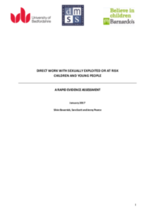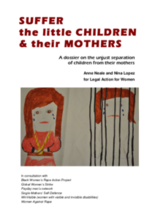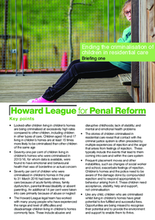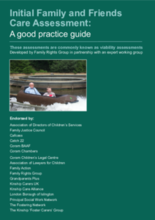

Displaying 1271 - 1280 of 1649
This article examines the ethics of forcing women to take birth control by sharing experiences of women who are part of the Pause program.
Four-year inquiry found widespread abuse in Northern Ireland child care homes.
A report presented to the House of Commons found 65% rise in the number of children separated from their parents.
Icelandic authorities arrested and held in custody a 17-year old asylum seeker who was carrying a false passport. According to Icelandic law, unaccompanied asylum seekers below the age of 18 fall under the care of Child Protective Services.
Adoptive father and social worker Al Coates discusses the non-binary nature of adoption and the need for adoption to evolve with the progression of society as it reframes what family looks like.
According to this article from The Australian approximately 1,000 children from the “Jungle Camp” in Calais remain in limbo in France.
This review is intended to provide Barnardo’s with an overview of what ‘direct work’ with young people entails in the context of CSE.
This Dossier aims to show the extent of the problem of children being taken into care in the UK and the trauma of family separation, the supporting evidence self-help groups of mothers are beginning to get from professionals, and to make proposals for action.
This is the first in a series of briefings to be published alongside a programme of research and campaign work to end the criminalisation of children living in residential care. The project builds on from research published in March 2016, which found that children living in children’s homes in the UK were being criminalised at much higher rates than other children, including those in other types of care.
This guide aims to provide social workers with a clear framework for undertaking preliminary assessments of family and friends.




